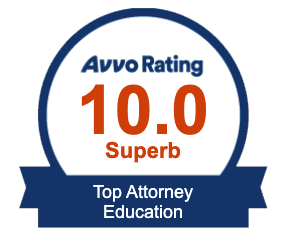I received phone calls from time to time asking about educational records, confidentiality of records and how to challenge or amend educational records. The questions usually are something like this: my child’s teacher disclosed confidential information about my child to someone in my community without my permission. Can I do something about this? Another question is how can I secure copies of my child’s educational records. And if there is something in these records that I disagree with, can I ask the school system to remove it? There are many other questions that parents have about their child’s educational records. There are two federal laws that apply to educational records, which are the Individuals with Disabilities Education Improvement Act of 2004 (“IDEA”) and the Family Educational Rights Privacy Act or (“FERPA”). To make it easy, FERPA applies to all educational records – whether your child is covered by the IDEA, Section 504 of the Rehabilitation Act, or is in regular education. The IDEA essentially adopts the same rights and protections of FERPA for parents of children with disabilities to review, copy, and challenge the contents of educational records. FERPA applies to all schools that receive federal educational funds, such as school systems. FERPA provides for confidentiality of records, access to records, and amendment of inaccurate or misleading information.
There are a few things to keep in mind when using FERPA when you find out that the school system, a teacher or administrator has disclosed confidential information about your child without your permission. First, you cannot sue the school system, teacher or administrator for this disclosure of confidential information. The U.S. Supreme Court held that there is a no private right of action to enforce the nondisclosure requirements of FERPA. Gonzaga University v. Doe, 536 U.S. 273 (2002). Second, FERPA has several exceptions which permit third parties or government to secure certain information contained in educational records. Third, parents and/or students have the right to challenge inaccurate or misleading information contained in your child’s educational records. There is much more to learn about your rights to challenge inaccurate or misleading information in your child’s educational records that you can find on my website.
There is also much more to learn about FERPA that I can possibly discuss in detail in this post. For this reason, you may be able to find the answer to your questions about your rights under FERPA and the IDEA on the main page of my website. You can locate the heading “Educational Records” on the main page and then download the information contained on that page which has a link from the U.S. Department of Education. This link provides an extensive comparison between FERPA and the IDEA concerning educational records. By using this link, you can find out the definition of educational records, the requirements for consent to secure and disclose educational records, right to inspect educational records, right of parents to amend records, right to request a hearing to amend inaccurate or misleading portions of the educational record, retention of records, procedural protections for parents, dispute resolution, and state complaints on disputes involving educational records. The U.S. Department of Education document is a very good resource to learn more about your rights and protections under FERPA and the IDEA concerning your child’s educational records

